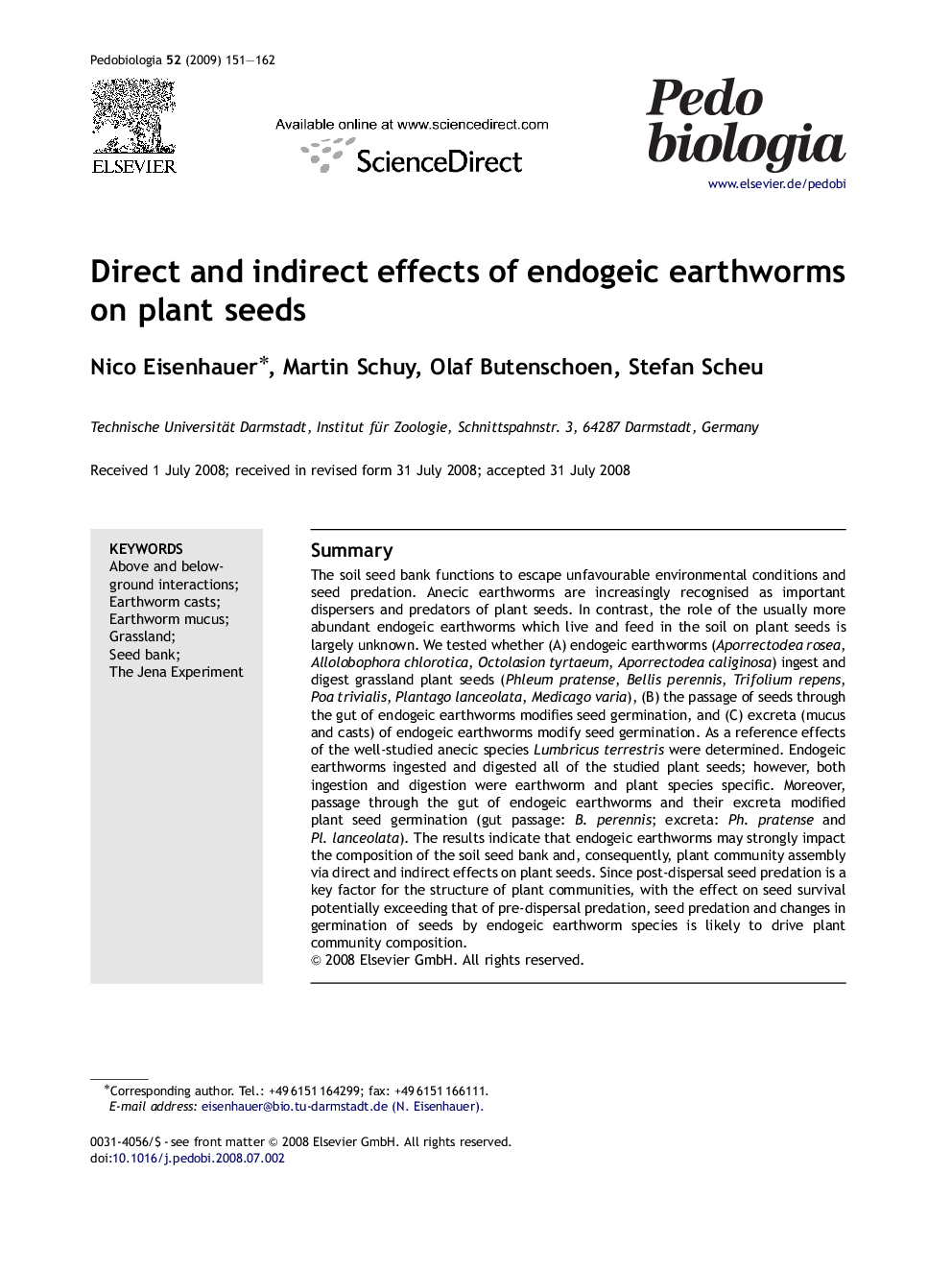| Article ID | Journal | Published Year | Pages | File Type |
|---|---|---|---|---|
| 2061336 | Pedobiologia | 2009 | 12 Pages |
SummaryThe soil seed bank functions to escape unfavourable environmental conditions and seed predation. Anecic earthworms are increasingly recognised as important dispersers and predators of plant seeds. In contrast, the role of the usually more abundant endogeic earthworms which live and feed in the soil on plant seeds is largely unknown. We tested whether (A) endogeic earthworms (Aporrectodea rosea, Allolobophora chlorotica, Octolasion tyrtaeum, Aporrectodea caliginosa) ingest and digest grassland plant seeds (Phleum pratense, Bellis perennis, Trifolium repens, Poa trivialis, Plantago lanceolata, Medicago varia), (B) the passage of seeds through the gut of endogeic earthworms modifies seed germination, and (C) excreta (mucus and casts) of endogeic earthworms modify seed germination. As a reference effects of the well-studied anecic species Lumbricus terrestris were determined. Endogeic earthworms ingested and digested all of the studied plant seeds; however, both ingestion and digestion were earthworm and plant species specific. Moreover, passage through the gut of endogeic earthworms and their excreta modified plant seed germination (gut passage: B. perennis; excreta: Ph. pratense and Pl. lanceolata). The results indicate that endogeic earthworms may strongly impact the composition of the soil seed bank and, consequently, plant community assembly via direct and indirect effects on plant seeds. Since post-dispersal seed predation is a key factor for the structure of plant communities, with the effect on seed survival potentially exceeding that of pre-dispersal predation, seed predation and changes in germination of seeds by endogeic earthworm species is likely to drive plant community composition.
